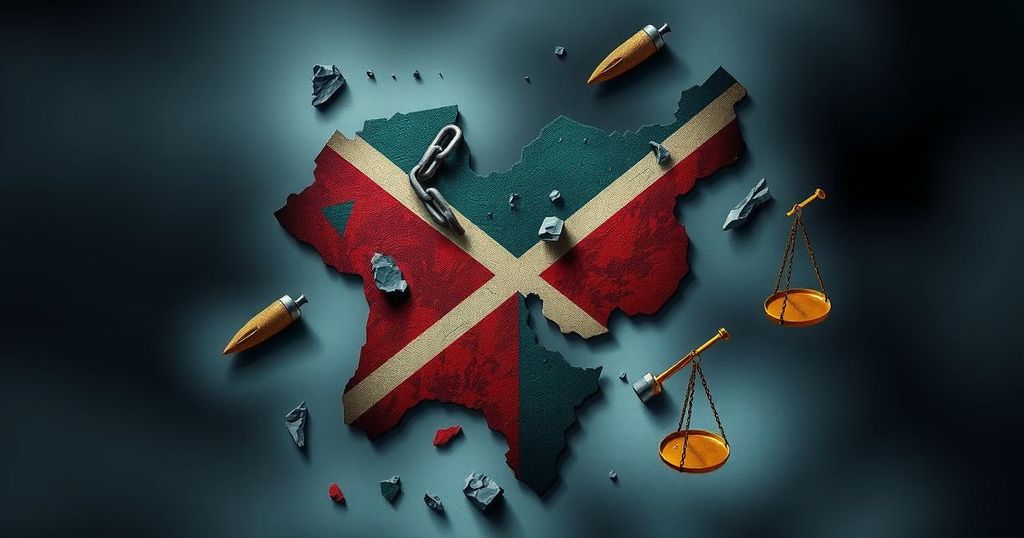Escalation of Conflict in the Democratic Republic of Congo: Key Developments and Background
M23 rebels have captured Goma in the eastern DRC, leading to civilian displacement and rising casualties among peacekeepers. The Congolese government has accused Rwanda of supporting the rebels, resulting in severed diplomatic ties. The conflict has roots in decades of insecurity and grievances related to ethnic representation, with M23 linked to earlier armed factions from the DRC’s tumultuous history.
Recent conflicts in the eastern Democratic Republic of Congo (DRC) have intensified, especially with M23 rebels capturing the strategic city of Goma. This situation has led to mass civilian displacement and heightened regional tensions, prompting Congolese authorities to sever ties with Rwanda, which they accuse of supporting the rebels. As violence escalates, the UN has reported significant casualties, including 17 peacekeepers, and over 400,000 individuals have been displaced since the start of the year.
Clashes continue between M23 fighters and Congolese forces, with the rebels launching aggressive offensives. The fighting has disrupted essential humanitarian aid, leaving many in the conflict-affected areas without food and medical supplies. In response to the escalating conflict, the Congolese army has initiated counter-offensives to reclaim lost territories, but the efforts have so far been insufficient against the rebel advances.
The M23 group originates from former members of the National Congress for the Defense of the People (CNDP), which previously signed a peace accord with the DRC government. Discontent with the government’s alleged failure to uphold the agreement led these former soldiers to re-emerge as M23, asserting their aim to advocate for the rights of the Tutsi minority in eastern Congo. The conflict in this region has been ongoing for nearly thirty years, marked by the presence of over one hundred armed factions vying for control of its resource-rich lands.
The eastern DRC has been plagued by instability due to a complex interplay of local and regional conflicts driven by the presence of multiple armed groups. Among these factions, M23, formed from former CNDP militants, indicates the ongoing struggle for power and influence in the region and reflects historical grievances related to ethnic representation and governance. The resurgence of M23 since 2021 highlights the fragile peace and unresolved issues stemming from previous peace agreements, contributing to the current crisis.
The situation in the Democratic Republic of Congo continues to deteriorate, with severe implications for its civilian population and regional stability. As M23 rebels gain territory and tensions with Rwanda escalate, the international community must urgently address both the humanitarian crisis and the underlying political disputes that fuel the conflict. Without concerted efforts towards conflict resolution and support for affected civilians, the cycle of violence and displacement is likely to persist.
Original Source: www.aa.com.tr




Post Comment